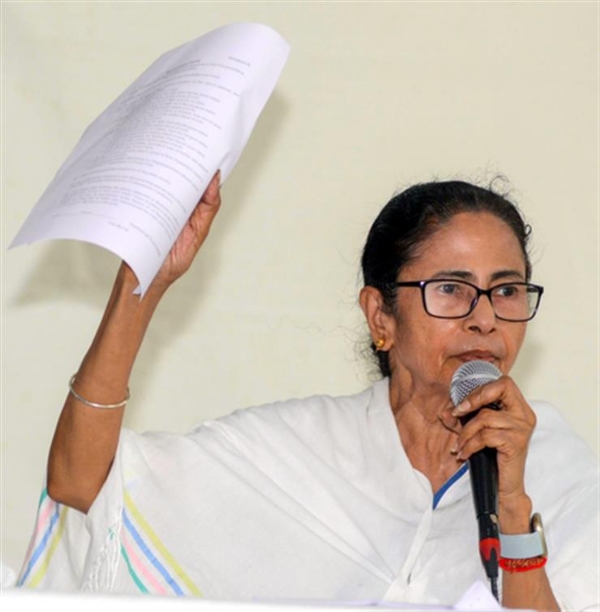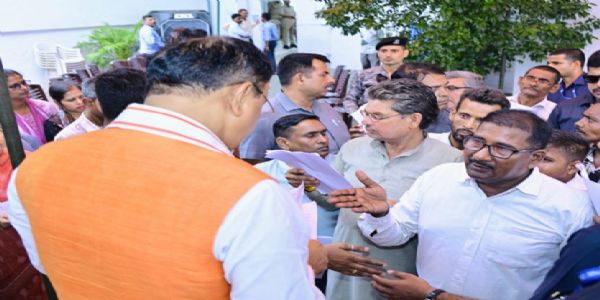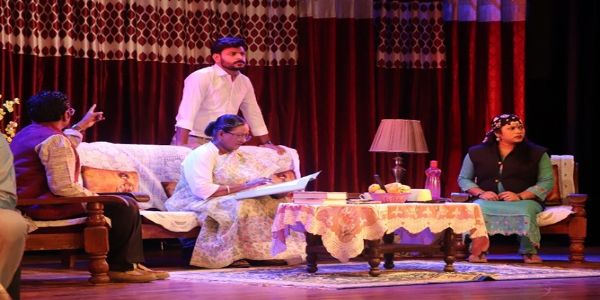
Kolkata, 21 July (H.S.) -
As the Trinamool Congress (TMC) gears up for the 2026 West Bengal Assembly elections, Chief Minister Mamata Banerjee is set to address the party’s annual rally at Dharmatala on July 21, a platform she is expected to use to outline the party’s political roadmap. The rally, held in memory of the 1993 police firing that killed 13 TMC workers, comes at a time when the party faces both internal challenges and external scrutiny.
July 21 has long held emotional and political weight for the TMC. But this year’s rally carries heightened significance as Mamata Banerjee seeks to set the tone for next year’s Assembly elections, with 15 years of anti-incumbency weighing heavily on the party. Banerjee’s Sunday comments during a stage inspection hinted at a combative tone, as she criticized previous Left Front governments for their attempts to suppress democratic movements, recalling the 1993 incident as a symbol of TMC’s resistance.
Since returning to power for a third consecutive term in 2021, the TMC government has weathered several blows — including high-profile corruption cases that led to the arrests of senior leaders such as Partha Chatterjee, Jyotipriyo Mallick, and Anubrata Mondal. While Chatterjee’s arrest in a teacher recruitment scam proved particularly damaging, Mondal’s detention in a cattle smuggling case drew attention due to his stature in Birbhum. Yet, TMC managed to increase its seat tally in the 2024 Lok Sabha elections from 22 to 29, suggesting the party retained substantial rural support despite urban discontent and civic protests.
In August last year, the rape and murder of a young doctor at RG Kar Medical College triggered a spontaneous wave of civic protests, with many women — traditionally considered TMC’s voter base — voicing their anger. Though the protests faded before the Puja season, their impact was keenly felt. A similar unease emerged after the alleged gangrape of a student in Kasba, where the accused were reportedly linked to TMC. The party, however, attempted damage control by highlighting the swift police action — a contrast it drew with BJP-ruled states.
Despite controversies, the TMC performed strongly in subsequent by-elections. It retained Naihati and Taldangra and snatched Madarihat from the BJP, indicating that the civic unrest had limited impact on its electoral base, especially in rural constituencies — which make up nearly 70 percent of the Assembly seats.
The TMC has consistently used Bengali pride and identity to counter the BJP's alleged cultural imposition. In recent months, Mamata Banerjee and Abhishek Banerjee have amplified this theme, organizing street protests against attacks on Bengali speakers in other BJP-ruled states. With the construction of a Jagannath temple in Digha and symbolic moves by Prime Minister Narendra Modi like chanting “Jai Maa Kali” instead of “Jai Shri Ram” in West Bengal, the battle for cultural narrative is clearly intensifying.
The rally is expected to see Mamata highlight her government’s welfare schemes — especially in the absence of central aid. She is likely to promote the “Banglar Bari” initiative, wherein the state has sanctioned housing for 28 lakh families after not receiving central funds for housing schemes. TMC leaders suggest that this program will be a major election plank, showing the state’s resolve to work for the people without relying on New Delhi.
Mamata is also likely to address concerns about the voter list revision process, fearing that legitimate voters may be excluded in a BJP-orchestrated conspiracy. Internally, TMC has been dealing with factionalism and public disagreements among leaders. Mamata may use the rally to issue a strong message on party discipline and unity in the run-up to the 2026 elections.
This year’s rally poses a dual challenge. While the TMC is focused on organizing a massive turnout to display its strength, the state administration must manage the gathering without disrupting normal life, in compliance with Kolkata High Court’s directives. The rally, occurring on a working Monday, will test the government’s ability to maintain order amid political mobilization.
Hindusthan Samachar / Satya Prakash Singh







